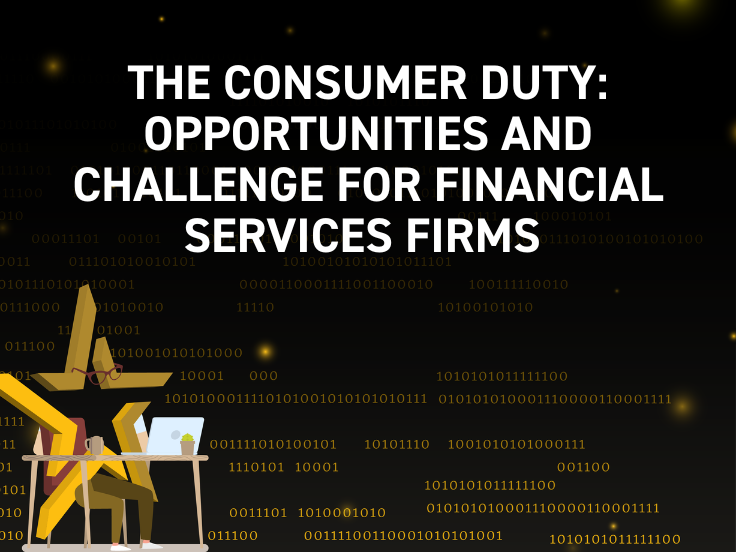
Financial exclusion has long been a blight on our society. The United Kingdom is at the forefront of the global finance industry and is a leader in the fields of financial services, technology, and innovation. Despite this, a sizable number of UK citizens lack access to even the most basic financial services. In addition, the ‘poverty premium’, whereby the poor pay more, serves to exacerbate the effects of financial exclusion, reinforcing a vicious circle. Also, bank branch closures are mushrooming and a growing emphasis on digital services, accelerated by the pandemic, threatens to intensify financial exclusion.
Everybody should have access to financial products and services that meet their needs over the course of their lifetime. It is a citizen right, a human right. We need urgent action, doubly so coming out of Covid. We must push to make 2022 really count; we must push for a new paradigm for financial inclusion. For individuals, for small businesses and for the social, psychological, and economic benefit of us all.
There are five elements to lead this mission:
- A financial inclusion remit for the Financial Conduct Authority (FCA).
- A clear, coherent roadmap for the future for cash.
- An access to digital payments review.
- Open Banking solutions to public sector challenges.
- A collective, connected, collaborative, unflinching effort.
Let’s now have a deeper look at these five elements:
1. We need a cross-cutting “must have regard” to financial inclusion for the FCA.
This should include a statutory duty to report to Parliament annually on:
- The state of financial inclusion in the UK.
- measures that the FCA has taken, and will take, to advance financial inclusion.
- recommended additional measures which could be taken by government and other public bodies to promote financial inclusion.
The FCA has a range of powers and tools that it uses to regulate the market which include its statutory objectives as well as the Treating Customers Fairly outcomes and its Public Sector Equality Duty. Despite this, there is no clear duty to tackle financial inclusion. This results in many consumers falling through the cracks, with regulators and government often pointing to each other for action.
Unfortunately, the new FCA Consumer Duty will not address this issue either. Without a clear statutory requirement for the FCA to address, or even consider, financial inclusion issues across its work we will not have the change we need. A clearer remit placed on the regulator to ensure it routinely and properly explores financial inclusion issues across its work, allowing greater transparency on unintended consequences, and detailing the best interventions needed to ensure financial inclusion, as well as who is best placed to act. This will sometimes be the FCA, the government, or a mixture of institutions working together.
2. We must protect cash for all our futures
Last year I put forward an amendment to the Financial Services Bill, now Act, to introduce the ability for individuals to get cashback without purchase. This has been successful so far but needs to gain greater scale. You can find out where this service is on offer by using LINK’s cash locator on its website or mobile app. Just type in your location and search for the orange symbols which state ‘CT’.
It is pleasing that, so far, the data demonstrates that the largest number of cashback without purchase transactions are for exact amounts of less than £20. This is delivering to a section of society pretty much ignored by financial services up to this point. Thus, financial inclusion enabled, economic activity in local communities and High Streets enabled, benefiting all.
3. We need an access to digital payments review
The Access to Cash review, brilliantly led by Natalie Ceeney, showed the way for cash. The review demonstrated why cash still matters and the absolute need for its continuing meaningful, reasonably accessible presence. It stopped us, just in time, from sleepwalking into a so-called “cashless” society and the devastating impact that would have had on those still reliant on cash. We are in danger of sleepwalking into another situation that will exclude those who are unable or unwilling to use digital payments. The pandemic has accelerated digital payments and this progress is to be celebrated but it must not come at the expense of those the digital revolution might leave behind. It seems logical that an Access to Digital Payments Review, like the Access to Cash Review before it, could help us fully understand the problem and propose solutions. An Access to Digital Payments Review would show us how to envisage and deliver a digital future inclusive, accessible for all as well as the route to it.
4. We need Open Banking solutions to public sector challenges
HMRC recently made history by becoming the first tax authority in the world to integrate Open Banking into their systems. Introduced as an alternative to paying tax with a debit card or corporate credit card, it has the potential to make it quicker and easier to pay tax for millions of people.
Innovation must not belong solely in the private sector and I have written about this with regards to another tech innovation, distributed ledger technologies (DLT), in a report, ‘DLT for public good’. We also need open banking solutions for public good. The government has created a four-year ‘Debt Resolution Services’ procurement framework – which has a total proposed work value of £645m, and is designed to encourage fintech-related solutions to improve public sector operations and the delivery of citizen services. The procurement framework for Debt Resolutions Services comprises 20 service types, including, ‘data solutions’ and ‘affordability and monitoring’. Companies are asked to provide ‘innovative and evolving’ solutions, including data aggregation and open banking for data solutions and to incorporate multi-credit reference agency data, open banking and automation software to better get a handle on citizens’ individual circumstances, such as potential financial vulnerability.
5. We need a collaborative, unflinching focus on financial inclusion
Again, as I attempted to argue through several amendments to the Financial Services Bill last year, we need to be able to see and strengthen a greater connected focus on the objective of financial inclusion. This must be led out of HM Treasury, cross-government to all relevant departments and Ministers, including the Bank of England, the FCA and the financial services sector. Only through this connected, collective, action by all those who can, will we be able to make that paradigm shift. Not merely nudging the dial, but transformational change, enabling, empowering, unleashing all that talent held back for want of financial and yes, digital inclusion.
Fighting financial exclusion is doable. So, let’s do it.
[The author of this article, Lord Holmes, is life peer in the House of Lords, UK Parliament]
You would also be interested to hear what other experts have to say on 2022 Trends:
- 2022 Trends: Financial Inclusion – Open Finance, Regulatory Experimentation, and New Use Cases | Written by Ariadne Plaitakis, Senior Financial Sector Specialist, CGAP.
- Open Banking, complexity, and shared ecosystems | Written by Dr. Karen Elliott, Senior Lecturer, University of Newcastle.
- Financial Inclusion in the Open Banking Era: More than ‘Banking the Unbanked’ | Written by Dr. Ira Sobel, Founder & CEO, Fintech4Longevity; and Jonny Paul, Founder & Director, Fintech Week Tel Aviv.
- Is There a Concrete Wall for Women in Latin American Fintech? | Written by Bernardo Bátiz-Lazo, Professor, Northumbria University; and Ignacio González-Correa, Lecturer, Universidad de Santiago.
What are the defining trends and learnings in Open Banking and Open Finance this year?
Find out in the Open Banking Excellence (OBE) Megatrends 2022 Report.
Featuring contributions from more than 30 industry pioneers, this Megatrends whitepaper is an unmissable briefing on the trends, opportunities and challenges in Open Banking. From VRPs to embedded finance, OBE’s Megatrends report will help you stay ahead of the curve and thrive in a new era.




 09:30 22 Feb 2022
09:30 22 Feb 2022  " alt="">
" alt="">

 " alt="">
" alt="">
 " alt="">
" alt="">
 " alt="">
" alt="">
 " alt="">
" alt="">
 " alt="">
" alt="">
 " alt="">
" alt="">
 " alt="">
" alt="">
 " alt="">
" alt="">